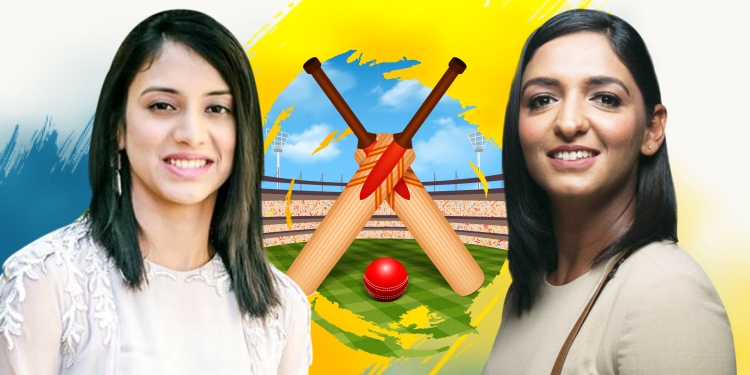The inaugural season of Women’s Indian Premier League (WIPL) is to be hosted from 3 to 26 March 2023. A media tender was floated recently for 2023 to 2027, for the proposed five-team tournament. As per media reports, 10 entities have picked the documents. The BCCI will follow a closed bidding process to grant the same.
While none of the information could be independently verified, the base price for franchisees is expected to be in the range of Rs.400 crore and the BCCI is reportedly expecting to rake in over Rs.1000 cr in revenue for each team.
BCCI announced the publication of a tender to own and run a franchise in the WIPL on 3rd January. Chennai Super Kings, Punjab Kings, Rajasthan Royals, Delhi Capitals and Kolkata Knight Riders have confirmed their interest in investing in a team in WIPL.
Medianews4u.com checked with a few planners, buyers and marketers for their views.
Will WIPL deliver audiences for broadcasters and advertisers? Is the profile of viewers likely to be different from that of IPL?
‘A lot will depend on hype and promotions’

“IPL has proven that female viewership is also high. That said, the marketing push for the men’s version is much higher but in recent times the effort is there to promote the women’s leagues as well. And a lot will depend on this hype and promotion to attract advertisers.
“In terms of viewership, the 2020 edition of the Women’s T20 Challenge (WT20C) had 5.34 billion minutes in viewership in India. 105 million unique viewers tuned into the three-team league compared to the previous season’s 71 million viewers which is encouraging and in current times the performance of the women’s team and awareness of the players will spike some interest. So there is an opportunity for advertisers.”
– Vinay Hegde, Chief Buying Officer, Madison Media
‘Success of national team has contributed to growing popularity of women’s cricket’

“Cricket is a popular sport in India, and the Indian women’s national cricket team has made significant strides in recent years. The team has won several international tournaments, including the Asia Cup, and has reached the final of the World Cup on several occasions. The success of the national team has contributed to the growing popularity of women’s cricket in India and has led to the development of a professional WIPL.
“Top performers like Mithali Raj, our very own Equitas Bank brand ambassador Smriti Mandhana, Harmeet Kaur or Jhulan Goswani have changed the way cricket was seen as a sport for women. The success of the national team has helped to increase the visibility and profile of women’s cricket in India. Such trendsetters have influenced a lot of other women to take up cricket as their sport. It is not a hobby anymore but a passion for most young women. No doubt WIPL is going to welcome more significant changes and will induce more young professionals.”
“WIPL will be a game-changer and will break the stereotype. With its success there will be a lot of Mithalis and Smrithis gearing up to be the next woman idol. The way it is shaping up, it will take less three to four years for women to take up this sport, making it an alternate career just like doctors and engineers.”
– Vignesh Murali, Sr. Vice President & Head of Marketing, Brand & Corporate Communications, Equitas Small Finance Bank
‘Timely innovation to add untouched dimensions to the game’

“IPL has turned into an extremely evolved and successful format of cricket. WIPL is an idea to add another dimension to it. As India seems ever thirsty for cricket, it puts a very stressful schedule for existing formats. WIPL will serve more cricket without stressing existing formats. The secret recipe that took cricket from the King-of-Games to the God-of-Games is innovation. This game keeps reinventing itself. WIPL is a timely innovation to add untouched dimensions to the game. None of the crazes like racing, soccer and basketball have shown such confidence towards any such innovation.
“With the invention of IPL, cricket successfully celebrated 60pc more women taking interest in the game. Once male dominated cricket viewership is now scarcely the same. With WIPL even this scarce tilt is expected to wither. It is here to disrupt the current audience profiling of cricket. Beyond females it is designed to focus an interesting set of audience: teenagers. Teenagers are a very volatile entity however they are not only very lucrative consumers but are also very crucial influencers. WIPL is here to face off social media and short video craze that are ruthlessly challenging time spent on sports genre by teenagers. WIPL should make the audience base more premium by adding more share of NCCS A and B to the audience mix.”
– Vaibhav Ratnaparkhe, Sr. Director – Media Buying, Starcom
“Incorrect to measure WIPL against existing IPL yardstick”

“As an initiative its pivotal but we need to keep in mind, that it will need nurturance & patience.
“Women’s cricket has historically suffered and not enjoyed the kind of adulation that cricket otherwise gets. Ratings for women’s cricket has been around 0.1 or lower, even when there were mini-IPL games held. So, going by past trends, it’s hard to say if women’s IPL will pick up as significantly in its first season. It would also be incorrect to measure it against the existing and historic IPL yardstick. Nothing really enjoys the same fandom that mens’ cricket gets in our country. The equal opportunity stance has now provided some impetus to the women’s game, bolstered further by the team’s performance. If it generates further audience interest the rest in terms of advertisers and broadcasters will follow. Existing franchises who have shown intent in investing in WIPL, have infra and equity, they know what it takes to stir crowds. But like any other business venture, the format will need time, it will need to evolve and adapt basis specific nuances.”
– Sujala Martis, Director – Consumer Marketing, Platinum Guild India
We also asked the spokespersons if WIPL will give women’s cricket sponsorship a boost. And if the profile of brands associating with the WIPL is likely to be different (from those on IPL).
Martis underlined, “While the investment levels may be well below the usual basket size, it could bring on board newer female-skewed categories like personal care/wellness, beauty and cosmetics or even jewellery but that might be more in terms of association rather than banking on it as a reach-driven approach. Sponsorship deliverables could also drive interesting engagement and profiling opportunities, more so if brands get access to top women cricketers as part of the deal. For brands it will reduce the over-reliance on cinema-centric celebrity associations and create a new breed of ambassadors based on real authentic performances and their incredible personal journeys.”
“The profile of viewers will not be different from the IPL skew. On IPL we have 52:48 (male:female) skew and popularity of some women cricketers amongst men would mean that men skew will grow even higher.”
Ratnaparkhe stated, “Of course WIPL is here to disrupt the set formats. Brands are already very excited for the value it could add to their share of voice. Early birds will definitely get loyalty perks as the format will grow bigger. This is making many new categories to bid for sponsorships. Ecommerce, Auto and FMCG are already very heavy on cricket. With WIPL, besides women-centric brands, tech, telecom and NBFCs are hoping to create more buzz by riding on WIPL.”
“Services category definitely would not want to lose the race with increased heat for sponsorships. WIPL will not only penetrate to new sets of advertisers but it is also expected to have such a design that could offer potent innovations in terms of creatives. On one hand, it will bring cool storyboards and on the other hand it will share the load on traditional FCT with more attractive non FCT alternatives,” he added.
Murali explained, “There are a number of factors that can help attract sponsors to a sports league, such as the size and popularity of the league, the level of competition, quality of play, and the potential for exposure and brand visibility for the sponsor. Other factors that may be considered by sponsors include, the alignment of the sponsor’s brand with the values and image of the league, the potential return on investment, and the availability of opportunities for engagement with fans and customers. In order to attract sponsors, it is important for the league to be able to demonstrate the value and benefits of sponsorship, and to have a clear plan in place for how sponsors will be integrated into the league and its events.”
He stated, “Honestly, we cannot compare between compare IPL and WIPL. IPL TRPs will be far superior to any other domestic sporting event in India. IPL is a more established and high profile league, but WIPL will be looking more towards providing an important platform for the development and growth of women’s cricket in India.”
WIPL will have to perform to grow its fan base and popularity, underlined Murali, and said, “There will be a new set of entrants from brands that promote women empowerment, senior citizens.”
Hegde highlighted, “A direct comparison with the men’s IPL which is now an established league would be incorrect, however marketing push and the format should ensure a boost in women’s cricket sponsorship. Discussions for various associations are on and it should only improve from here. A whole lot of categories will need to take that leap of faith to ride on this property. Ultimately, it is cricket and the profile of viewers should be a good enough reason for various brands to associate. More brands associating would augur well for this league in particular and women’s cricket in general.”

















